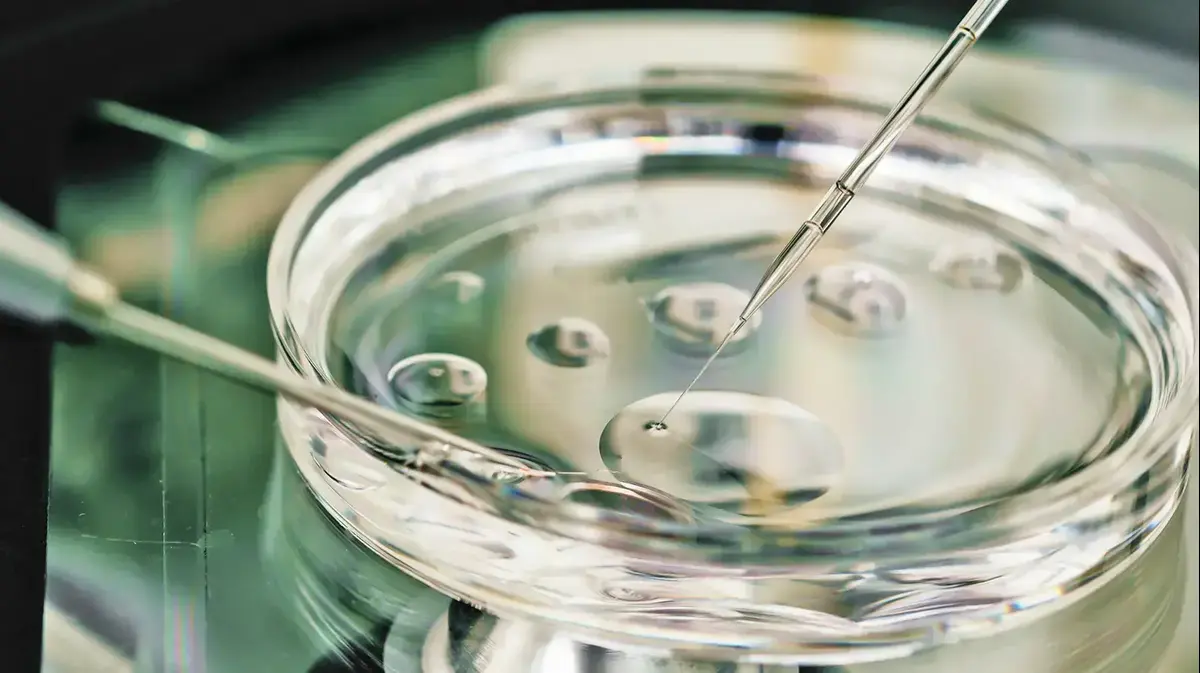The eggs were infected with the genetic disease hemophilia B/image processing, Shutterstock
The police and the Ministry of Health announced that they opened an investigation into the suspicion of importing fertilized eggs from Georgia that carried the genetic disease hemophilia B, after learning of two Israeli patients in whom the infected eggs were implanted and at least one baby was born with a deformity.
It is estimated that other women were injured in the affair.
The eggs were extracted from women in Georgia and returned to several women in Israel, although according to the Ministry of Health, "the information about the disease was known to teams abroad and in Israel"
. What does it do to its patients and why is it so dangerous?
What is hemophilia?
According to the AL Association for those dealing with hemophilia, it is a rare genetic (hereditary) blood disease in which the blood does not clot properly. As a result, a person with hemophilia who is injured or bruised will bleed for a longer time and the injured area will be difficult to heal
. -1 in 10,000 people is born with hemophilia A - the most common form of the disease, which affects four out of five patients. Hemophilia B is a less common type of hemophilia and its incidence is 1:30,000 male births, regardless of the ethnicity of the newborn.
Hemophilia B is A 'male' disease - the vast majority of those diagnosed with it are boys and men. This is a familial phenomenon that mainly affects the sons of carrier mothers, because the genes responsible for the disease are found on the female X chromosome. However, on rare occasions girls may also suffer from hemophilia, or the disease breaks out as a result of a mutation A new spontaneous genetic (mutation) that has not been inherited.
People with hemophilia B lack coagulation factor IX or have too low levels of this factor. This type of hemophilia is sometimes called "Christmas disease." It is named after Stephen Christmas who was recognized as a The first to be diagnosed with this type of hemophilia in the 1950s.
Bloody cut on palm/ShutterStock
The symptoms of hemophilia A or hemophilia B
big bruises
Bleeding into the muscles or joints
Spontaneous bleeding (sudden bleeding for no apparent reason)
Prolonged bleeding after a minor injury, tooth extraction or surgery
Continuous bleeding for a long time after an accident, especially after a head injury
In severe cases of hemophilia there is prolonged bleeding even after a minor injury or even without injury (spontaneous bleeding)
Serious complications of the disease may develop following bleeding into the joints, muscles, brain or other internal organs.
Internal bleeding may damage internal tissues and organs and may even be life-threatening.
Prenatal diagnosis
In cases where there is a family history of hemophilia, it is possible to check whether the fetus carries any mutation in coagulation factor 9 or 8. Prenatal diagnosis is done by testing placental cysts or amniotic fluid.
If the fetus is found to be a carrier of the same mutation, and the woman is in the early stages of pregnancy, the doctor may recommend termination of pregnancy.
care
Today, there are a number of experiments designed to cure hemophilia type A that may in the future be able to greatly relieve the patients, who must now regularly inject themselves with a protein necessary for blood clotting, in order to prevent bleeding, some of which are even life-threatening.
This treatment is demanding and involves 150-100 injections per year.
If this is not enough, its effectiveness is limited, and many patients continue to experience bleeding and damage to joints and other organs, along with an impairment of the quality of life and a high financial cost.
The most prominent gene therapy clinical trial at the moment, given as a single intravenous infusion, contains trillions of neutralized viruses that have been genetically engineered to carry within them the instructions for producing the missing protein.
More on the same topic:
Eggs
pregnancy
in vitro fertilization

